Here's what maternity leave looks like around the world
Katie Warren,Melissa Wells

- The amount of time off work a new mother will get varies wildly depending on where they live.
- It varies from more than a year of paid time off in Bulgaria to no leave at all in the US.
In some places in the world, new mothers can take several months off work after giving birth — and they don't have to worry about money because they're getting paid.
Some countries pay mothers the same amount as the salary they were making before, while others offer a percentage of their former salary, starting at about 30% for developed countries.
Most developed nations pay new mothers at least half of their previous salary during their time off, according to a report by the Organization of Economic Cooperation and Development, or the OECD, that studied maternity leave in 42 countries around the world. The OECD, a 35-member organization dedicated to democracy and the market economy, looked at policies in place as of April 2016.
On average, maternity leave in OECD countries lasts 18 weeks. Only one developed country — the United States — offers zero paid maternity leave.
Research shows that paid maternity leave is good for individuals, businesses, and the economy. A study by the Institute for Women's Policy Research found that it keeps women in the workforce and lowers their need for public assistance.
Here is a snapshot of paid maternity leave in 42 countries around the world, listed in alphabetical order.
Australia: 18 weeks

Australians get 18 weeks of paid maternity leave at the average pay rate of 42% of their former salary, which comes out to about 7.5 weeks of full-time pay.
Austria: 16 weeks

Austria pays new mothers 100% of their salary for 16 weeks.
There is, however, one caveat: Maternity leave must start eight weeks before the due date, according to the country's government website.
Belgium: 15 weeks

In Belgium, the 15 weeks of maternity are paid at a rate of 64.1% of the previous salary. This equates to 9.6 weeks with full-time pay.
According to Business Insider, however, Belgian moms can opt to take eight months of part-time leave instead of the 15 full weeks.
Bulgaria: 58.6 weeks
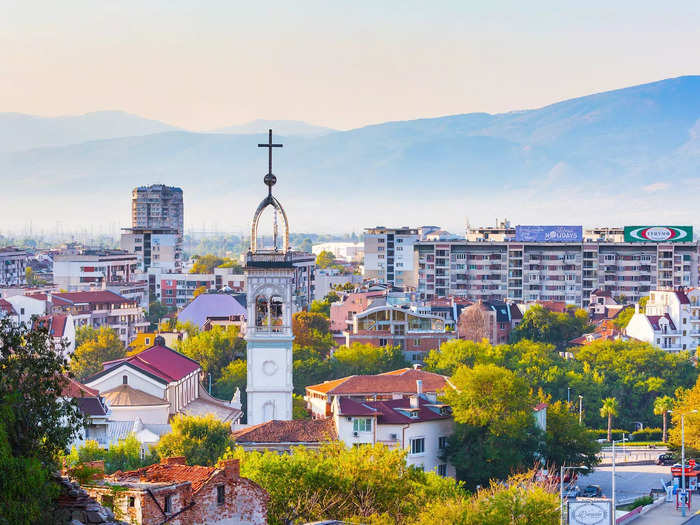
This Eastern European country gives new mothers a whopping 58.6 weeks — more than a year — of paid maternity leave, according to the OECD.
The pay rate is 78.4% of the mother's previous full-time salary, which comes out to about 45.9 weeks off with full-time pay.
Canada: 17 weeks
The US's neighbor to the north offers new mothers 17 weeks off at 48.4% pay or 8.2 weeks at full-time pay.
Chile: 18 weeks

Chile offers 18 weeks of maternity leave at 100% pay.
Costa Rica: 17.3 weeks
In Costa Rica, which is not an OECD member country, mothers are guaranteed 17.3 weeks of fully-paid maternity leave.
Croatia: 30 weeks
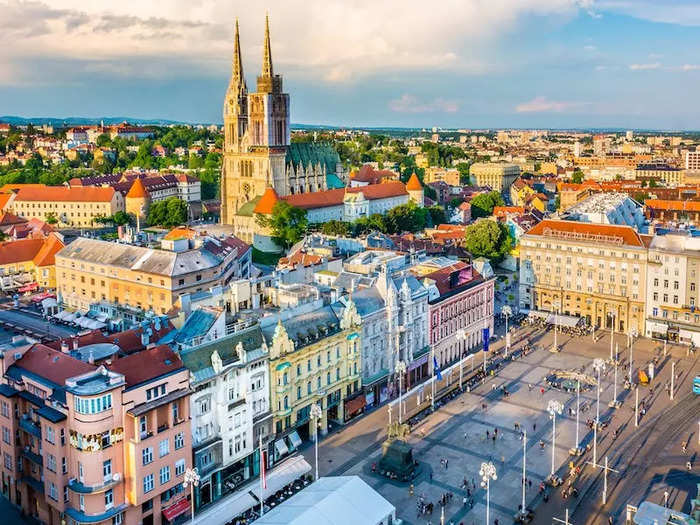
Croatia sits on the higher end of the spectrum by offering 30 weeks of fully-paid maternity leave.
Croatia is also not an OECD member country, but its maternity leave is well above the OECD average.
Cyprus: 18 weeks

This island country gives new mothers 18 weeks of maternity leave. Moms are paid 75.2% of their salary, which would come out to 13.5 weeks off if they were fully-paid.
Czech Republic: 28 weeks

The Czech Republic pays new mothers 62.6% of their salary for 28 weeks, making the equivalent time off with full-time pay 17.5 weeks.
Denmark: 18 weeks
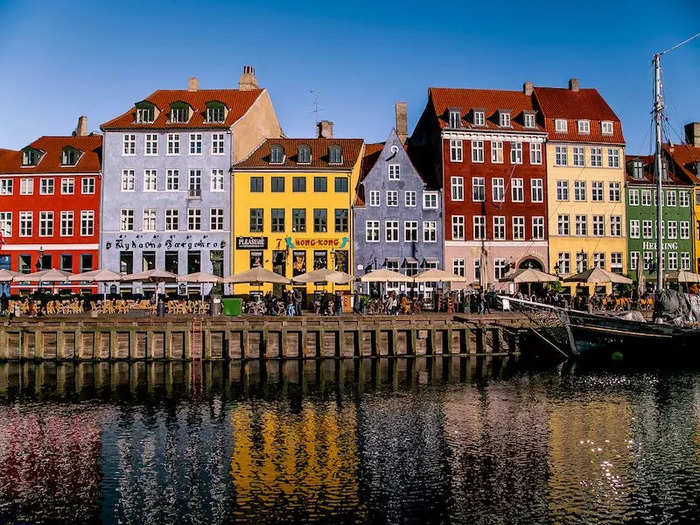
New moms in Denmark get 18 weeks off work and are paid 53.6% of their salary.
That comes out to 9.6 weeks at full-time pay.
Those 18 weeks break down to four weeks before the birth and 14 weeks after, according to Business Insider.
Estonia: 20 weeks
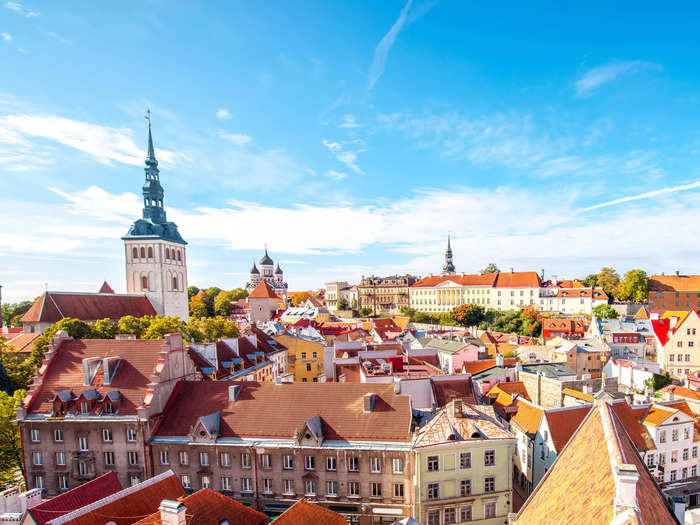
Estonia, a European country just west of Russia, provides 20 weeks of leave at a 100% pay rate, according to the OECD.
Finland: 17.5 weeks
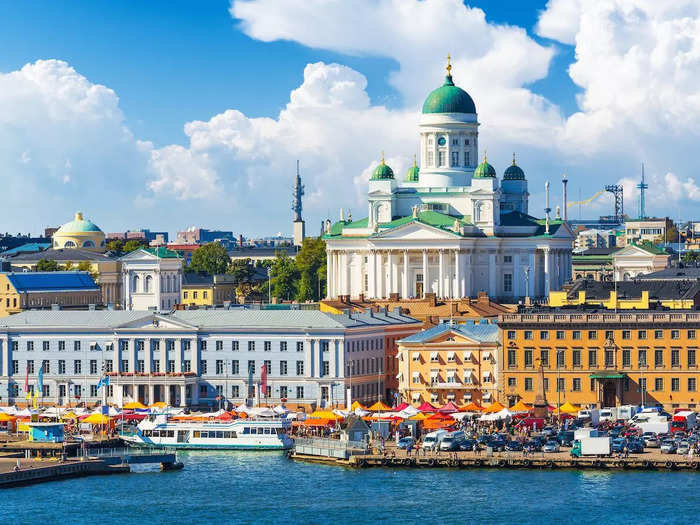
The Finns get 17.5 weeks off for maternity leave at 74.4% pay. This would equate to 13 weeks of fully-paid time off.
France: 16 weeks
Mothers in France get 16 weeks off after the birth of their baby, paid at an average of 94.2% of their previous salary. This equates to 15.1 weeks paid at a full-time rate.
But fewer French people are having babies, with the birth rate falling for the third year in a row in 2017, according to France 24.
Germany: 14 weeks
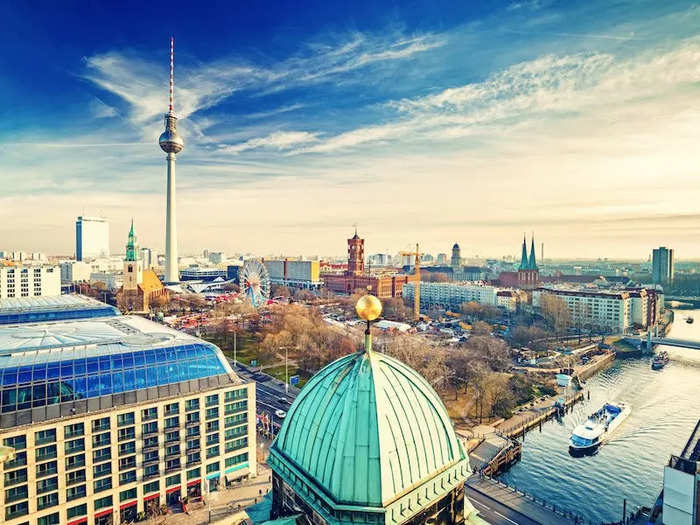
German mothers are guaranteed 14 weeks of fully-paid maternity leave.
This is a good thing, as the German birth rate is at its highest level in decades, The Local Germany reported.
Greece: 43 weeks
Greece provides mothers with 43 weeks off and pays them 54.2% of their previous salary, which comes out to 23.3 weeks with full-time pay.
Hungary: 24 weeks

In Hungary, you're guaranteed 27 weeks off as a new mother with 70% pay.
The full-time pay equivalent is 16.8 weeks of paid leave.
Iceland: 13 weeks

Iceland's 13 weeks of maternity leave come with a 59% pay rate, which would be 7.8 weeks at a full-time salary.
Ireland: 26 weeks

The lucky Irish mothers get 26 weeks of maternity leave, but they're paid just 34.3% of their salary.
If they were fully-paid, that leave would come out to 8.9 weeks.
Israel: 14 weeks
In Israel, maternity leave is guaranteed for 14 weeks with 100% pay.
Israel had the highest birth rate out of any OECD country in 2016, according to the Times of Israel.
Italy: 21.7 weeks

Italy promises 21.7 weeks of maternity leave at 80% pay, making the equivalent time off with full-time pay would be 17.4 weeks.
Italy's birth rate is on the decline, according to The Local Italy, with 9,000 fewer babies born in 2017 than in 2016.
Japan: 14 weeks

Japanese mothers get 14 weeks off for maternity leave, and they're paid 67% of their previous salary. The equivalent with full pay would be 9.4 weeks.
Despite this policy, the rates of birth and marriage in Japan are at a record low, according to The Diplomat.
Korea: 12.9 weeks

In South Korea, the allotted maternity leave is 12.9 weeks at 79.5% pay. This works out to 10.2 weeks of fully-paid leave.
South Koreans are having fewer babies than ever, according to Quartz, with only 357,000 born in 2017.
Latvia: 16 weeks
This Northern European country provides 16 weeks of maternity leave at a pay rate of 80%.
This would be 12.8 weeks at a full-time salary.
Lithuania: 18 weeks

This county in northeastern Europe grants mothers 18 weeks of maternity leave — the OECD average — paid at the rate of their full salary.
Luxembourg: 16 weeks

This tiny European country assures mothers 16 weeks off, fully-paid.
Malta: 18 weeks
Malta moms get 18 weeks off for maternity leave and they're paid at 87% of their salary.
This would be 15.7 weeks if they were fully-paid.
Mexico: 12 weeks
Mexico assures its new mothers 12 weeks of maternity leave at a 100% pay rate.
Netherlands: 16 weeks

Known for its bikes, canals, and tulip fields, the Netherlands offers its new moms 16 weeks of fully-paid maternity leave.
New Zealand: 18 weeks
Currently, New Zealand offers new mothers up to 18 weeks of paid leave at 42% pay. That comes out to 7.7 weeks of full-time paid time off.
But according to CNN Money, New Zealand will increase paid time to 22 weeks this year.
Despite the allotted amount of time, New Zealand's pregnant Prime Minister, whose baby is due on June 17, 2018, will only take six weeks of maternity leave, according to The Straits Times.
Norway: 13 weeks
Norwegian mothers are allowed 13 weeks off and they're paid almost the equivalent of their full salary — 97.9%.
That would amount to a slightly lesser 12.7 fully-paid weeks.
Poland: 20 weeks
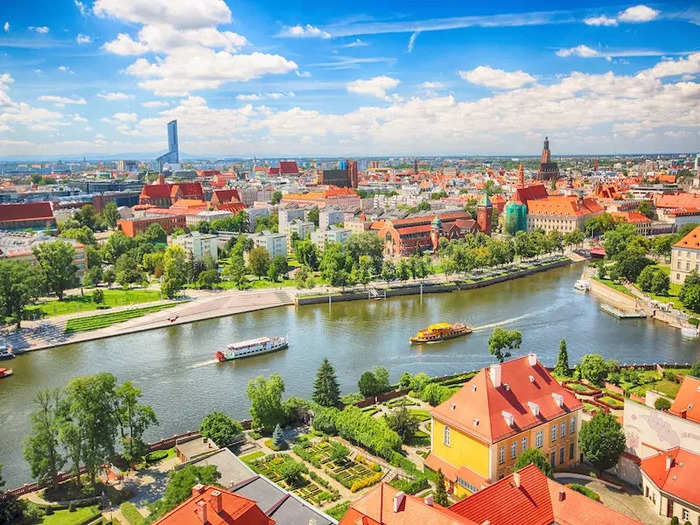
In Poland, maternity leave comes in at 20 weeks — and mothers are paid their full salary.
Portugal: 6 weeks

This Southern European country offers six weeks of maternity leave, well below the OECD average.
Those six weeks are, however, fully-paid.
Romania: 18 weeks
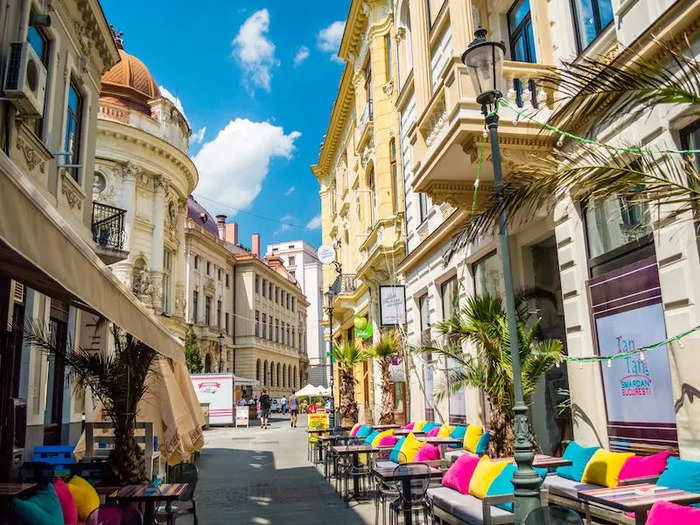
Romania offers mothers 18 weeks off and pays them a rate of 85% of their salary.
In fully-paid time off, this would amount to 15.3 weeks.
Slovakia: 34 weeks
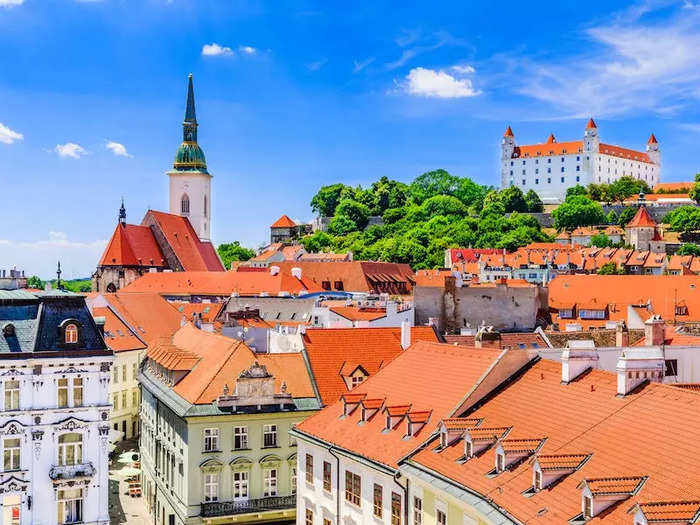
Officially the Slovak Republic, Slovakia promises new mothers 34 weeks of leave at 70% payment rate, which comes out to 23.8 fully-paid weeks.
Slovenia: 15 weeks
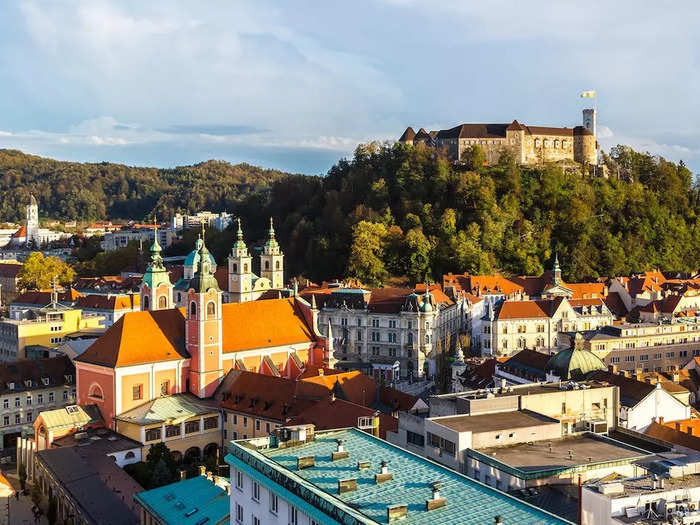
Slovenian mothers get 15 weeks of leave and they're paid the equivalent of their full former salary.
Spain: 16 weeks
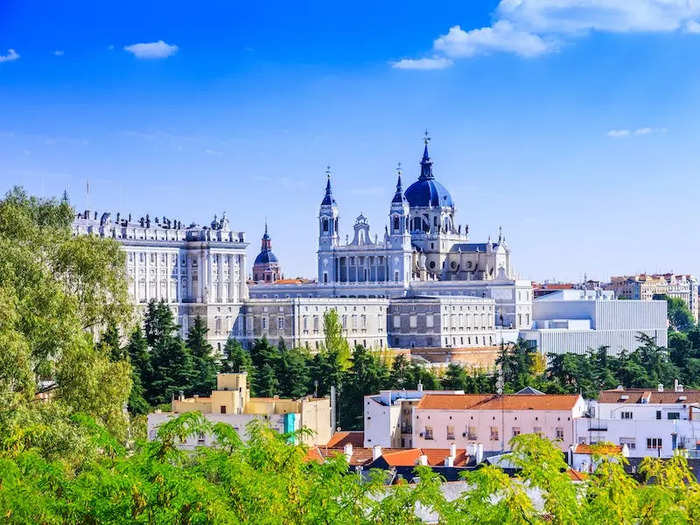
Spanish moms get 16 weeks of fully-paid maternity leave.
Sweden: 12.9 weeks
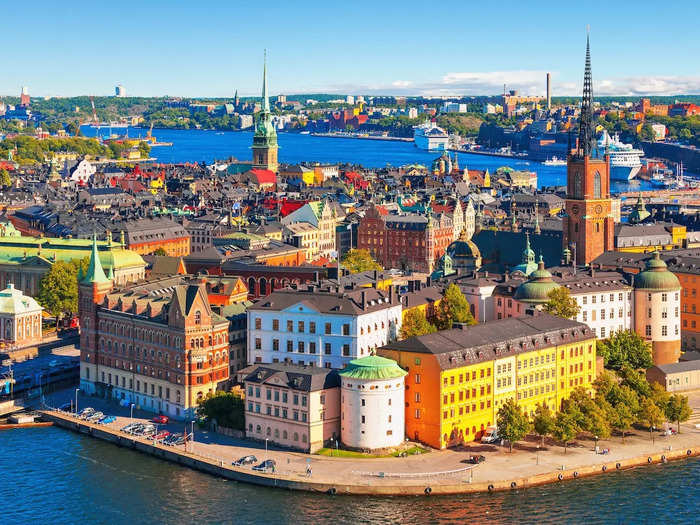
In Sweden, mothers get 12.9 weeks off and are paid at a rate of 77.6% of their former salary.
This would work out to 10 fully-paid weeks.
Switzerland: 14 weeks
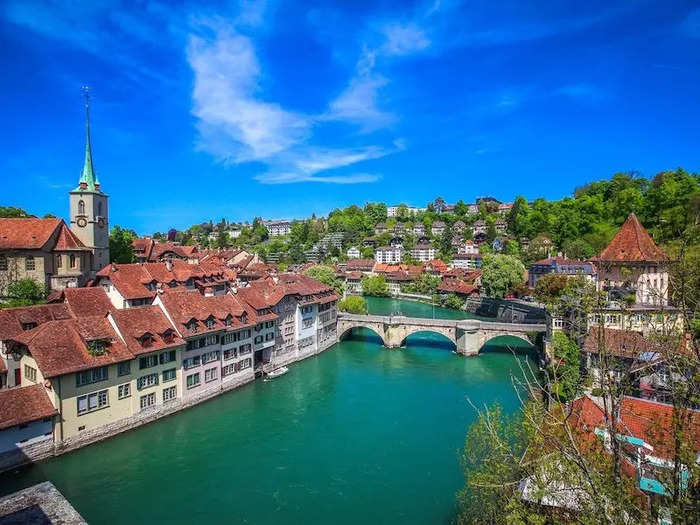
Maternity leave in Switzerland is 14 weeks with a pay rate of 56.4%.
That corresponds with 7.9 weeks off with full pay.
Turkey: 16 weeks
Turkish moms get 16 weeks of paid maternity leave. The pay rate is 66% of their previous salary, which would work out to 10.6 fully-paid weeks off.
The United Kingdom: 39 weeks
Mothers in the UK are allowed up to a whole year off for maternity leave, but only the first 39 weeks are paid — at a rate of 30.9% of their former salary.
The fully-paid equivalent time off would be 12.1 weeks.
United States: 0 weeks

There's no sugarcoating it — the US is the only country in the developed world that doesn't guarantee any paid maternity leave for mothers, according to the OECD.
The US has no federal law guaranteeing women (or men) paid time off after they have a baby. Instead, they leave it up to employers, which results in more than 40% of companies choosing not to offer any paid maternity leave at all, according to a 2016 survey of medium-to-large companies.
Some companies take it upon themselves to offer paid leave.
Netflix, for example, offers employees a full year of paid time off after the birth of their child, according to Business Insider. That includes birth and adoptive parents of any gender.
Popular Right Now
Popular Keywords
Advertisement